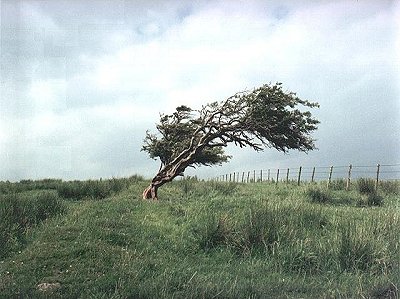
Jan L. A. van de Snepscheut
If you read and talk about personal development too much, then it can begin to turn into a kind of mystical abstraction. The more you try to intellectualize about it, the further away your goals seem to become.
This is why you should view your personal development as a “practice-based philosophy.” The very nature of the subject “personal development” requires that you are capable of putting your values, beliefs, and ideas into action. Action is the primary requirement. Without action, you’re in a place of personal stagnation.
Have you ever heard of a “keyboard jockey?” A keyboard jockey is an individual who spends more time typing on their computers about how to do something than actually practicing it in the real world. It’s a term that first became popular in the Pick-Up Artist (PUA) community.
Whether or not you agree with PUAs, they were right on this one. They understood that in order to learn something, or get better at it, you need to go out into the “field” and practice it.
Michael Jordan didn’t become a professional basketball player by reading books about basketball. Gary Vaynerchuk didn’t become a Wine expert by reading books about wine. And Style didn’t become a Pick-Up Artist by reading books about seduction.
-
Nothing can replace practice and personal experience.
So what happens when we don’t practice and just theorize?
The downfall of too much theory: “paralysis by analysis”
In effect, we begin to think about a situation so much that we actually inhibit ourselves from ever taking action. We get an idea for a new business, then the very next day we think of 2 or 3 other possibilities. Eventually, our list keeps piling up, but we never follow through on any of them.
Paralysis by analysis is especially prevalent in today’s world because we have so many damn choices. There are so many different foods to eat, girls to date, careers to choose, places to see, music to listen to, etc. Sometimes there are so many possibilities that we don’t know where to start. So we just do nothing. We become so overwhelmed by the amount of choices we have that we’d rather not make a decision. Perhaps it’s because the “opportunity cost” of missing out on all those decisions is too much for us to bare.
The more we ruminate on our options, the more likely we are to suffer paralysis by analysis. This is one very obvious way that too much theorizing can greatly inhibit our personal development.
When you take action, you learn what you really want
Often we don’t really know what we want (let alone how to get it) until we get a taste of it. This is why experimenting with new experiences can be so beneficial. Sure, we may have some rough moments along the way, but that will just give us an even better idea on what we want and don’t want out of life.
Sometimes it’s better to let the bad things happen rather than keep theorizing and worrying about them inside your head. You may find:
- It wasn’t as bad as you thought it would be.
- You gain experience and learn from it in a way you never could just by thinking about it.
- You build resilience – “what doesn’t kill you often makes you stronger.”
- You develop a deeper understanding of your preferences and values.
Now, I’m not saying we should act recklessly without any sense of caution, but I do think that often the things we worry about are more harmless than we make them out to be.
Beliefs should be practical and flexible
“Truth is what works.”
William James
Beliefs are only as valuable as they are practical. You can theorize about alternative universes and multiple Gods all you want, but if you have no access to the truth, and it has no bearing on how you act on a daily basis, it shouldn’t really matter (at least not from a personal development perspective).
Sure, it may be fun to think about all these unknowns, and it may even make us more critical thinkers, but if these questions begin taking up too much energy and time, then it is probably best to re-focus on more practical matters. Focus on the ideas that bring you results and ignore abstract matters which are often inconsequential.
I recall the earlier years of my conscious pursuit for personal development. I began to become really infatuated with Buddhism, eastern philosophy, enlightenment, and seeking an “absolute truth” about the nature of reality and consciousness.
I would go to my universities libraries and take out books on all kinds of stuff, not excluding astral projections, the afterlife, paranormal activity, philosophy of mind, etc. It was a long and tiresome journey, and nothing very fruitful came out of it. I eventually had to abandon the pursuit, accepting the fact that there are some things I don’t know and can’t know, and those things aren’t worth obsessing over.
Since then it feels as though a weight has been lifted off my shoulders. Being able to accept that you “don’t know and can’t know” everything is one of the most liberating feelings in the world.
It’s also the best reason to keep your beliefs flexible. It would be pretty presumptuous to think you can discover (and settle) for a few beliefs and principles and live your whole life in accordance to them. The universe is way too complex and humans are all too fallible for us to base all of our decision-making on a few static principles.
That’s not to say we should abandon all principles and values, only that it is important not to be bounded by them when they no longer apply. That is the big idea behind being ground in practicality vs. being grounded in theory.
You may make it a general principle “not to kill others,” but if you find yourself in a situation where someone was attacking you, then you may be willing to kill them in self-defense. In the same way, there are situations I may not even be able to imagine where I may need to compromise, adjust, or abandon certain values depending on the circumstances.
I want to finish by saying I believe choosing practice over theory also opens us up to more possibilities and more freedoms. Being completely fixed on our principles makes us stubborn and narrow-minded. But giving ourselves the flexibility and freedom to adapt to our surroundings allows us to navigate throughout life much more effectively.
Imagine a tree in wind:

The more hard and rigid it stands, the more likely it will break when met with wind or resistance.
The more flexible it is, the more it will bend with the wind or resistance, not break, and persist another day.
The same is true for our beliefs. When we remain firm and stubborn, we are more likely to fight resistance and hurt ourselves. But when we allow ourselves the freedom to be flexible, we can more easily bend (or adapt) to the resistance.
The lesson? Don’t cling to superficial beliefs, but what is most practical – swallow your ego and do what works, not what you want to be true.
Enter your email to stay updated on new articles in self improvement:
